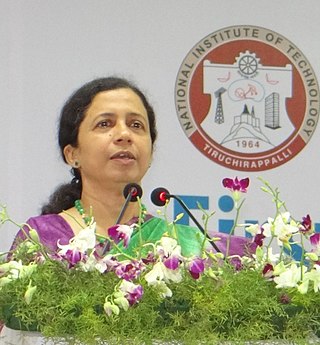Awards and decorations of the United States government are civilian awards of the U.S. federal government which are typically issued for sustained meritorious service, in a civilian capacity, while serving in the U.S. federal government. Certain U.S. government awards may also be issued to military personnel of the United States Armed Forces and be worn in conjunction with awards and decorations of the United States military. In order of precedence, those U.S. non-military awards and decorations authorized for wear are worn after U.S. military personal decorations and unit awards and before U.S. military campaign and service awards.

Jacek M. Zurada is a Polish-American computer scientist who serves as a Professor of Electrical and Computer Engineering Department at the University of Louisville, Kentucky. His M.S. and Ph.D. degrees are from Politechnika Gdaṅska ranked as #1 among Polish universities of technology. He has held visiting appointments at Swiss Federal Institute of Technology, Zurich, Princeton, Northeastern, Auburn, and at overseas universities in Australia, Chile, China, France, Germany, Hong Kong, Italy, Japan, Poland, Singapore, Spain, and South Africa. He is a Life Fellow of IEEE and a Fellow of International Neural Networks Society and Doctor Honoris Causa of Czestochowa Institute of Technology, Poland.
John G. Webster was an American electrical engineer and a founding pioneer in the field of biomedical engineering. In 2008, Professor Webster was awarded the University of Wisconsin, College of Engineering, Polygon Engineering Council Outstanding Instructor Award. In 2019, the Institute of Electrical and Electronics Engineers awarded him its James H. Mulligan Jr. Educational Medal for his career contributions. Professor Webster died on March 29, 2023.

Ian F. Akyildiz is a Turkish-American electrical engineer. He received his BS, MS, and PhD degrees in Electrical and Computer Engineering from the University of Erlangen-Nürnberg, Germany, in 1978, 1981 and 1984, respectively. Currently, he is the President and CTO of the Truva Inc. since March 1989. He retired from the School of Electrical and Computer Engineering (ECE) at Georgia Tech in 2021 after almost 35 years service as Ken Byers Chair Professor in Telecommunications and Chair of the Telecom group.

Non evaporable getters (NEG), based on the principle of metallic surface sorption of gas molecules, are mostly porous alloys or powder mixtures of Al, Zr, Ti, V and Fe. They help to establish and maintain vacuums by soaking up or bonding to gas molecules that remain within a partial vacuum. This is done through the use of materials that readily form stable compounds with active gases. They are important tools for improving the performance of many vacuum systems. Sintered onto the inner surface of high vacuum vessels, the NEG coating can be applied even to spaces that are narrow and hard to pump out, which makes it very popular in particle accelerators where this is an issue. The main sorption parameters of the kind of NEGs, like pumping speed and sorption capacity, have low limits.
The IEEE Richard M. Emberson Award was established by the IEEE Board of Directors in 1986. It is presented to an IEEE member for distinguished service to the development, viability, advancement, and pursuit of the technical objectives of the IEEE.
IEEE Honorary Membership is an honorary type of membership of the Institute of Electrical and Electronics Engineers (IEEE), that is given for life to an individual. It is awarded by the board of directors of IEEE to people 'who have rendered meritorious service to humanity in [the] IEEE's designated fields of interest' while not being members of IEEE.
The IEEE Sensors Council Technical Achievement Award honors a person with outstanding technical contributions within the scope of the IEEE Sensors Council, as documented by publications and patents. The award is based on the general quality and originality of the contributions. At the moment, four Awards are given every year. This kind of award honors a person with outstanding technical contributions within the scope of the IEEE Sensors Council, as documented by publications and patents. It is based on the general quality and originality of contributions. The winner of this Award is presented with a plaque and $2,000 check. Awards are available in two fields: the field of "Sensors" and the field of "Systems or Networks"; within each field, an Early Career and an Advanced Career are given every year. Early Career awards are for individuals within 15 years of receiving the first degree. Advanced Career awards are for individuals beyond 15 years of the first degree

William J. (Bill) Borucki is a space scientist who worked at the NASA Ames Research Center. Upon joining NASA in 1962, Borucki joined the group conducting research on the heat shield for Apollo program spacecraft. He later turned his attention to the optical efficiency of lightning strikes in the atmospheres of planets, investigating the propensity that these lightning strikes could create molecules that would later become the precursors for life. Subsequently, Borucki's attention turned to extrasolar planets and their detection, particularly through the transit method. In light of this work, Borucki was named the principal investigator for NASA's Kepler mission, launched on March 7, 2009 and dedicated to a transit-based search for habitable planets. In 2013, Borucki was awarded the United States National Academy of Sciences's Henry Draper Medal for his work with Kepler. In 2015 he received the Shaw Prize in Astronomy.

Hanspeter Pfister is a Swiss computer scientist. He is the An Wang Professor of Computer Science at the Harvard John A. Paulson School of Engineering and Applied Sciences and an affiliate faculty member of the Center for Brain Science at Harvard University. His research in visual computing lies at the intersection of scientific visualization, information visualization, computer graphics, and computer vision and spans a wide range of topics, including biomedical image analysis and visualization, image and video analysis, and visual analytics in data science.

Andrei M. Shkel is a Professor of Mechanical and Aerospace Engineering at the University of California, Irvine. He was named Fellow of the Institute of Electrical and Electronics Engineers (IEEE) in 2014 "for contributions to micromachined gyroscopes". He served as the President of the IEEE Sensors Council (2020-2021). In 2021, he was elected to National Academy of Inventors (NAI) Fellow status. He is currently the Editor-in-Chief of the IEEE Sensors Letters.
Srinivas Tadigadapa is a professor and chair of the Department of Electrical and Computer Engineering at Northeastern University in Boston, Massachusetts. From 2000 to 2017 he was a professor of electrical engineering at Penn State University. Prior to that, he was the vice president of manufacturing at Integrated Sensing Systems Inc., and was involved with the design, fabrication, packaging, reliability, and manufacturing of micromachined silicon pressure and Coriolis flow sensors.

John Albert Kay is a retired Canadian electrical engineer.

Gabriele Kotsis is an Austrian computer scientist. She is full professor in computer science at Johannes Kepler University (JKU), Linz, Austria, while leading the Department of Telecommunication and the division of Cooperative Information Systems. She was vice-rector for Research and the Advancement of Women, and longstanding chairwoman of Universities Austria's Policy Committee on Research. She is a distinguished member and elected president of the Association for Computing Machinery (ACM).
Helen M. Wood is an American computer scientist who worked for many years at the National Bureau of Standards, directed the Office of Satellite Data Processing and Distribution in the National Oceanic and Atmospheric Administration, and served as president of the IEEE Computer Society.

Mini Shaji Thomas is the Former Director of National Institute of Technology, Tiruchirappalli from 2016 - 2021. Thomas was the first female and 8th director of the Institute since it was founded in 1964. Currently she is the Dean of Faculty of Engineering & Technology, Jamia Millia Islamia, New Delhi
Ramalingam "Rama" Chellappa is a Bloomberg Distinguished Professor, who works at Johns Hopkins University. At Johns Hopkins University, he is a member of the Center for Language and Speech Processing, the Center for Imaging Science, the Institute for Assured Autonomy, and the Mathematical Institute for Data Sciences. He joined Johns Hopkins University after 29 years at The University of Maryland. Before that, he was an assistant, associate professor, and later, director, of the University of Southern California's Signal and Image Processing institute.

John Vig is a physicist, executive and inventor. His career has been with the U.S. Army Research Lab and he has also been active with the IEEE. He is known for his inventions in UV-ozone cleaning, chemical polishing of quartz surfaces, polyimide bonding of resonators and noise in MEMS.
Pasqualina Maria (Lina) Sarro is an Italian nanoscientist whose research concerns micromachining and other techniques for fabricating silicon and silicon carbide based micro-electromechanical systems. She is professor of Electronic Components, Technology and Materials, former Antoni van Leeuwenhoek Professor, and former department chair, in the Department of Microelectronics of the Delft University of Technology in The Netherlands.









